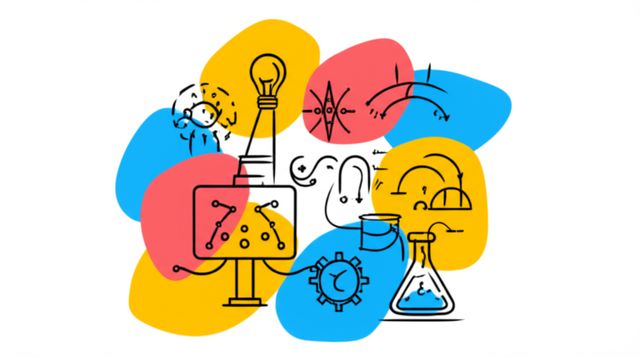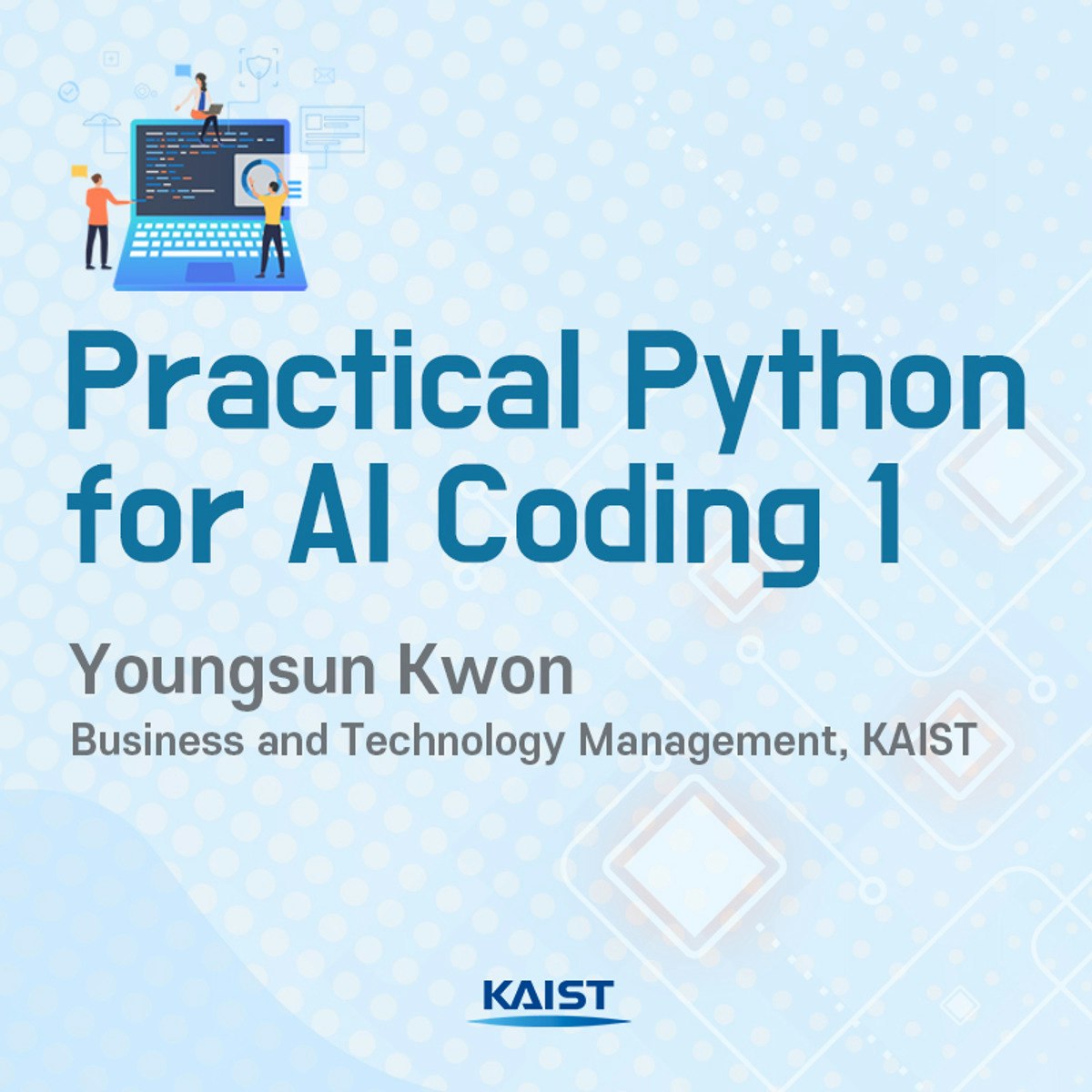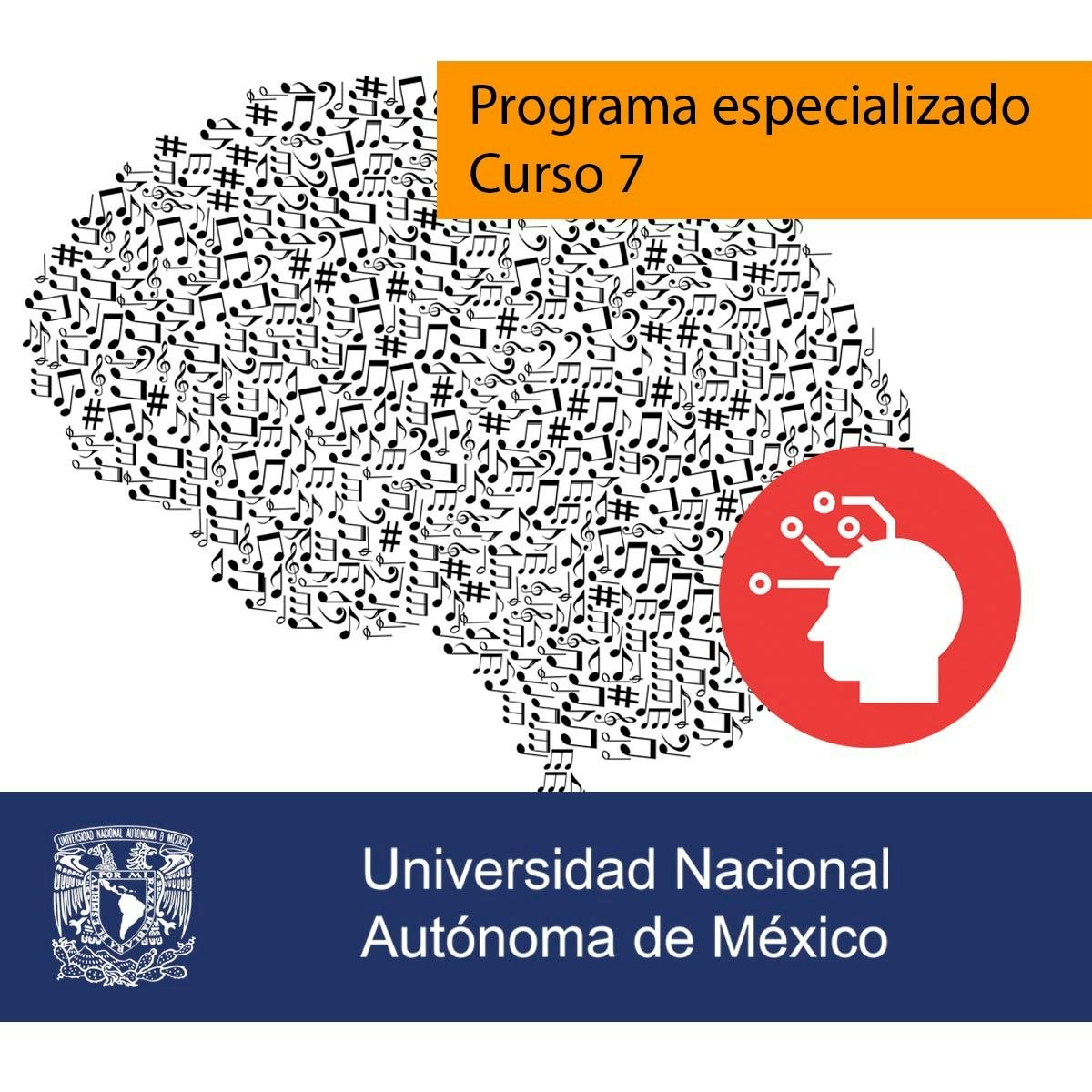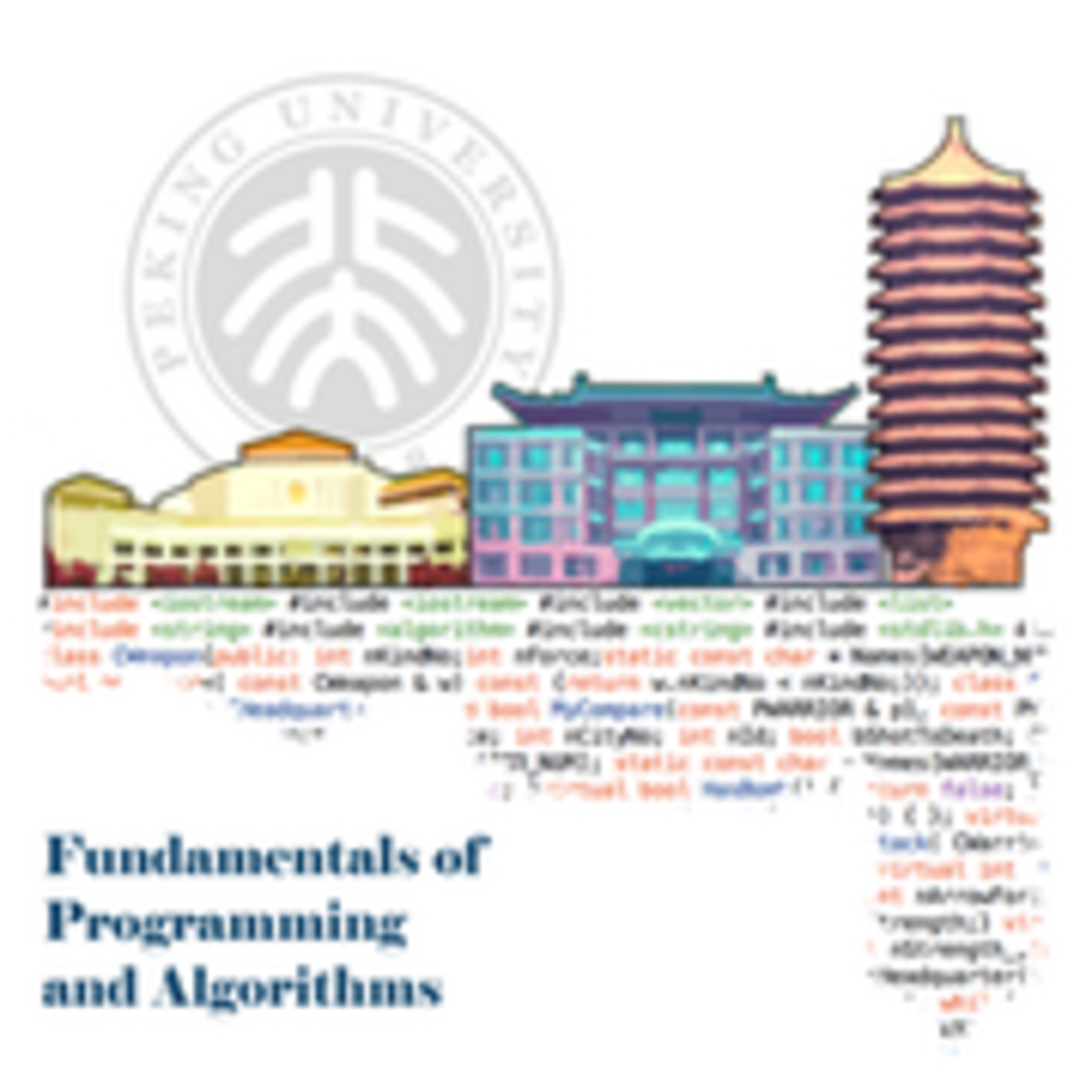Computational Scientist
Exploring a Career as a Computational Scientist
Computational science is a dynamic and interdisciplinary field that leverages the power of computers to understand and solve complex problems across various scientific and engineering domains. It involves using advanced computing capabilities, mathematical modeling, and simulation to gain insights and make predictions that would be difficult or impossible through traditional experimental or theoretical approaches alone. Think of it as a third pillar of scientific discovery, working alongside experimentation and theory.
Working as a computational scientist can be incredibly engaging. You might find yourself developing sophisticated computer models to simulate phenomena like the formation of galaxies, the interactions of molecules, or the spread of diseases. The thrill comes from translating real-world complexities into a computational framework, running simulations that can save time and resources compared to physical experiments, and then analyzing the vast amounts of data generated to uncover new knowledge or design better solutions. Furthermore, computational scientists often collaborate with experts from diverse fields, making each project a unique learning experience and an opportunity to contribute to cutting-edge research and innovation.
What Does a Computational Scientist Do?
A computational scientist's daily work involves a blend of scientific inquiry, software development, and data analysis. They are essentially problem-solvers who use computational tools to tackle complex challenges. Their responsibilities can vary significantly depending on the industry and specific project.
On any given day, a computational scientist might be found designing and implementing mathematical models that represent real-world systems or phenomena. This could involve writing code in languages like Python, C++, or R to build simulations, and then running these simulations on high-performance computing clusters or cloud platforms. A significant portion of their time is also dedicated to analyzing the large datasets generated by these simulations, using statistical methods and visualization tools to interpret results and draw meaningful conclusions.
Collaboration is another key aspect of the role. Computational scientists often work in interdisciplinary teams alongside domain experts such as biologists, physicists, engineers, or economists. This requires strong communication skills to translate scientific questions into computational problems and to effectively convey complex findings to both technical and non-technical audiences. They also spend time keeping up with the latest advancements in computational methods, programming languages, and their specific field of application to ensure their approaches are current and effective.
Core Skills and Competencies
To excel as a computational scientist, a unique combination of technical expertise and analytical thinking is essential. These professionals must be adept at bridging the gap between scientific theory and practical computation. The core skills and competencies can be broadly categorized into programming, mathematical modeling, data analysis, and familiarity with advanced computing environments.
Essential Programming Languages
Proficiency in programming is fundamental for a computational scientist. You'll use programming languages to develop algorithms, build simulations, automate tasks, and analyze data. While the specific languages can vary by specialization, some are widely used across the field.
Python is a popular choice due to its readability, extensive libraries for scientific computing (like NumPy, SciPy, and Pandas), and versatility. R is another critical language, particularly favored for statistical analysis and data visualization. For performance-critical applications, especially those involving complex simulations and large-scale computations, languages like C++ and Fortran are often employed due to their efficiency. Familiarity with scripting languages and version control systems like Git is also highly beneficial.
Developing strong coding skills is an ongoing process. For those looking to build a solid foundation or enhance their existing abilities, numerous online courses can provide structured learning paths. Consider exploring courses that cover not just the syntax of these languages, but also best practices in software development and algorithm design.
These books delve into the practical application of programming in scientific contexts and can serve as excellent references.
Mathematical Modeling and Numerical Analysis
At the heart of computational science lies mathematical modeling. This involves translating complex real-world problems into a set of mathematical equations that can be solved computationally. A strong grasp of various mathematical concepts, including calculus, linear algebra, differential equations, and probability and statistics, is crucial.
Numerical analysis is the study of algorithms for solving these mathematical problems. Since exact analytical solutions are often impossible for complex models, computational scientists rely on numerical methods to find approximate solutions. This includes techniques for numerical integration, differentiation, solving systems of linear and nonlinear equations, and approximating solutions to differential equations. Understanding the accuracy, stability, and efficiency of different numerical methods is vital for producing reliable simulation results.
Online courses focused on numerical methods and mathematical modeling can provide the theoretical background and practical skills needed in this area. Look for courses that offer hands-on experience with implementing these methods.
These texts are standard references in the field and offer comprehensive coverage of numerical techniques and their applications.
Data Analysis and Visualization
Computational experiments and simulations often generate vast amounts of data. The ability to effectively analyze this data to extract meaningful insights is a critical skill for computational scientists. This involves applying statistical techniques, identifying patterns and trends, and validating the results of computational models against experimental or observational data.
Data visualization plays a key role in both understanding complex datasets and communicating findings to others. Computational scientists need to be proficient in using various visualization tools and techniques to create clear and informative graphical representations of their data, such as plots, charts, and 3D renderings. Effective visualization can reveal hidden structures in data, highlight important relationships, and make complex results more accessible to a broader audience.
Many online learning platforms offer courses specifically designed to build skills in data analysis and visualization, often using popular tools and libraries within languages like Python or R.
For further reading on data analysis techniques relevant to scientific research, consider these books.
High-Performance Computing (HPC) and Cloud Platforms
Many scientific problems are so computationally intensive that they require the power of high-performance computing (HPC) systems or supercomputers. These systems consist of many interconnected processors working in parallel to solve large-scale problems much faster than a standard desktop computer could. Computational scientists often need skills in parallel programming, which involves designing algorithms that can be executed simultaneously on multiple processors.
Understanding concepts like message passing (e.g., using MPI) and shared memory programming (e.g., using OpenMP) is essential for utilizing HPC resources effectively. Cloud computing platforms, such as Amazon Web Services (AWS), Google Cloud Platform (GCP), and Microsoft Azure, are also increasingly used in computational science. They offer scalable computing resources and a wide range of services that can be valuable for running simulations, storing large datasets, and collaborating on projects without the need for investing in and maintaining local HPC infrastructure.
Online courses are available to introduce the fundamentals of HPC, parallel programming techniques, and how to leverage cloud computing for scientific workloads.
These books provide deeper insights into the world of parallel computing and high-performance systems.
Educational Pathways
Embarking on a career as a computational scientist typically begins with a strong educational foundation in a quantitative discipline. The specific path can vary, but generally involves rigorous training in mathematics, computer science, and a chosen scientific or engineering field. Many aspiring computational scientists pursue advanced degrees to gain specialized knowledge and research experience.
Relevant Undergraduate Degrees
A bachelor's degree is generally the minimum educational requirement to enter fields related to computational science. Common undergraduate majors include computer science, mathematics, physics, engineering (such as aerospace, mechanical, or chemical engineering), or statistics. Some universities are also beginning to offer specialized undergraduate programs in computational science or computational engineering.
Regardless of the specific major, it's crucial to build a strong foundation in core areas like calculus, linear algebra, differential equations, numerical methods, programming, data structures, and algorithms. Coursework in a specific scientific domain where you intend to apply computational methods is also highly beneficial, as developing realistic models requires in-depth knowledge of that subject area.
Online courses can be an excellent way to supplement your undergraduate education, fill any gaps in your knowledge, or explore specialized topics within computational science. They can also help you gain practical skills in specific programming languages or software tools that might not be covered extensively in your university curriculum.
Graduate Programs and Specializations
While a bachelor's degree can open doors to some entry-level positions, many computational scientist roles, particularly those involving research or advanced model development, require a master's or doctoral (PhD) degree. Graduate programs in computational science, computational science and engineering, or a traditional scientific/engineering discipline with a computational specialization provide the advanced training and research experience needed for these roles.
Master's programs typically deepen a student's understanding of numerical methods, high-performance computing, data analysis, and mathematical modeling, often with a focus on a particular application area. A PhD in computational science involves more extensive research, culminating in a dissertation that makes an original contribution to the field. This level of education is often necessary for academic positions or leadership roles in research and development.
When considering graduate programs, look for institutions with strong research groups in your area of interest and faculty who are actively engaged in computational research. Interdisciplinary programs that bridge departments can also offer valuable perspectives.
These books are often considered essential reading for graduate-level studies in areas underpinning computational science.
Interdisciplinary Research and Certifications
Computational science is inherently interdisciplinary, drawing on expertise from computer science, mathematics, and various scientific and engineering domains. Engaging in interdisciplinary research, even at the undergraduate level, can provide invaluable experience. This could involve working in a lab that uses computational methods, contributing to open-source scientific software projects, or participating in research-focused internships.
While formal certifications are not as prevalent in computational science as in some other IT fields, specialized certifications in areas like high-performance computing, cloud platforms (e.g., AWS Certified Cloud Practitioner, Google Cloud Professional Data Engineer), or specific software tools can enhance your skillset and resume. Some universities and professional organizations also offer certificate programs in computational science or related areas, which can be a good option for those looking to gain focused expertise without committing to a full degree program.
Continuously seeking opportunities to learn and collaborate across disciplines is key to a successful career in this evolving field. Online courses can be a flexible way to acquire new interdisciplinary skills or prepare for certifications.
Career Opportunities and Sectors
The demand for computational scientists is robust and growing across a wide array of industries. Their unique ability to model complex systems, analyze large datasets, and develop innovative solutions makes them valuable assets in academia, government research, and the private sector. As technology continues to advance and data becomes increasingly central to decision-making, the career outlook for computational scientists remains exceptionally bright.
Diverse Roles Across Academia, Government, and Industry
Computational scientists find fulfilling careers in various settings. In academia, they often work as researchers and educators at universities, pushing the boundaries of knowledge in their respective fields and training the next generation of scientists. Government laboratories and research institutions also heavily employ computational scientists to tackle grand challenges in areas like national security, energy, climate change, and public health. For example, agencies like the Department of Energy utilize computational tools to design advanced energy systems and analyze environmental impacts.
The private sector offers a multitude of opportunities. Industries such as aerospace and automotive rely on computational scientists for designing and simulating vehicles and components. The biotechnology and pharmaceutical industries use computational methods for drug discovery, genomic analysis, and personalized medicine. Financial institutions employ them for risk modeling, algorithmic trading, and fraud detection. Furthermore, tech companies, from large corporations like Google, Amazon, and Microsoft to smaller startups, hire computational scientists for roles in research, data science, and software development.
The skills developed as a computational scientist are highly transferable, offering flexibility in career paths. Many online resources, including job boards and professional networking sites, can help you explore opportunities in these diverse sectors. OpenCourser's career development resources can also provide guidance.
Emerging Frontiers: AI, Climate Modeling, and Quantum Computing
The field of computational science is constantly evolving, with several emerging frontiers offering exciting new avenues. Artificial intelligence (AI) and machine learning (ML) are increasingly integrated into computational workflows. Computational scientists are using AI/ML techniques for tasks like accelerating simulations, discovering patterns in complex data, and developing more accurate predictive models across various scientific disciplines. This synergy is creating new roles at the intersection of AI and scientific research.
Climate modeling is another critical area where computational science plays a vital role. Developing sophisticated models of the Earth's climate system is essential for understanding climate change, predicting its impacts, and evaluating potential mitigation and adaptation strategies. This requires immense computational power and expertise in numerical methods, fluid dynamics, and data assimilation.
Quantum computing, while still in its early stages, holds the potential to revolutionize computational science by solving problems that are currently intractable for even the most powerful classical supercomputers. Computational scientists are actively exploring how quantum algorithms could be applied to areas like materials science, drug discovery, and optimization problems. As quantum hardware matures, there will be a growing need for scientists who can bridge the gap between quantum computing and scientific applications.
Staying abreast of these emerging fields through online courses, research papers, and conferences is crucial for computational scientists looking to contribute to the forefront of innovation.
Career Progression: From Entry-Level to Leadership
The career trajectory for a computational scientist can vary, but generally involves increasing levels of responsibility, specialization, and leadership. Entry-level positions might involve tasks like coding, running simulations under supervision, data processing, and assisting senior scientists. These roles often require a bachelor's or master's degree.
With experience and often an advanced degree (Master's or PhD), computational scientists can progress to roles where they design and lead research projects, develop novel computational methods, manage research teams, and secure funding. They might specialize in a particular scientific domain (e.g., computational biology, computational fluid dynamics) or a specific computational technique (e.g., machine learning, high-performance computing).
Further career advancement can lead to positions such as principal investigator, research director, or senior technical leadership roles in industry. Some computational scientists also transition into management, policy advisory roles, or start their own companies. The specific path often depends on individual interests, skills, and the sector in which they work. Continuous learning and skill development are key throughout this progression.
Exploring different career paths within and adjacent to computational science can be beneficial. For example, skills in computational science are highly relevant to roles like Data Scientist or Machine Learning Engineer.
Navigating the Challenges in Computational Science
While a career in computational science offers immense intellectual rewards and opportunities for impact, it also comes with its unique set of challenges. Aspiring and current computational scientists should be prepared to navigate these hurdles. Successfully addressing them often requires a combination of technical prowess, adaptability, and strong collaborative skills.
Tackling Large-Scale Data and Computational Demands
Modern scientific instruments and large-scale simulations can generate petabytes or even exabytes of data. Managing, processing, storing, and analyzing these massive datasets present significant technical challenges. Computational scientists must be adept at using tools and techniques for big data management, including distributed file systems, databases, and data-intensive computing frameworks.
Furthermore, many cutting-edge scientific problems require enormous computational resources, pushing the limits of current supercomputers. Gaining access to and effectively utilizing high-performance computing (HPC) resources can be a challenge. This includes writing efficient parallel code, optimizing algorithms for specific hardware architectures, and managing job submissions on shared computing clusters. The sheer scale of computation also raises concerns about energy consumption and the environmental footprint of these powerful machines.
Online courses focusing on big data technologies, parallel computing, and efficient algorithm design can equip computational scientists with the skills to manage these data and computational demands.
These books offer valuable insights into managing and programming for large-scale computational tasks.
Keeping Pace with Technological Evolution
The landscape of computational science is characterized by rapid technological advancements. New programming languages, software libraries, hardware architectures, and computational methods emerge continuously. Staying current with these developments requires a commitment to lifelong learning and professional development.
This can involve regularly reading scientific journals and conference proceedings, attending workshops and training sessions, participating in online communities, and experimenting with new tools and technologies. The ability to quickly learn and adapt to new paradigms is a crucial attribute for a successful computational scientist. For individuals transitioning into the field or those seeking to update their skills, this rapid evolution can seem daunting, but it also presents constant opportunities for growth and innovation.
Platforms like OpenCourser offer a vast catalog of courses that can help professionals stay updated with the latest tools and techniques in areas like Artificial Intelligence, Cloud Computing, and specific programming languages.
Fostering Interdisciplinary Communication and Collaboration
Computational science is inherently collaborative, often involving teams of researchers from diverse backgrounds, including computer scientists, mathematicians, and domain-specific scientists (e.g., biologists, physicists, chemists). Effective communication and collaboration across these disciplinary boundaries can be challenging. Each field has its own jargon, methodologies, and ways of thinking, which can sometimes lead to misunderstandings.
Successful computational scientists must be skilled communicators, able to explain complex computational concepts to domain experts and, conversely, understand the scientific questions and constraints from their collaborators. Building trust, fostering mutual respect, and developing a shared understanding of project goals are essential for productive interdisciplinary teamwork. This often involves patience, active listening, and a willingness to learn from others outside one's own area of expertise.
While technical skills are paramount, developing so-called "soft skills" like communication and teamwork is equally important. Many professional development courses, including some available online, focus on improving these crucial interpersonal competencies.
Ethical Considerations in the Digital Frontier
As computational science becomes increasingly powerful and pervasive, it brings with it a range of ethical considerations that practitioners must navigate responsibly. The ability to model complex systems, analyze vast datasets, and develop sophisticated algorithms necessitates a keen awareness of the potential societal impacts of this work. Addressing these ethical dimensions is crucial for ensuring that computational science is used for the betterment of humanity.
Safeguarding Data Privacy and Security
Computational models often rely on large datasets, some of which may contain sensitive or personal information. Ensuring the privacy and security of this data is a paramount ethical responsibility. This involves implementing robust data protection measures, adhering to relevant privacy regulations (like GDPR or HIPAA, depending on the context and location), and anonymizing or de-identifying data whenever possible.
Computational scientists must be mindful of how data is collected, stored, processed, and shared. Breaches of data security or misuse of private information can have severe consequences for individuals and erode public trust in scientific research. Ethical guidelines and best practices for data management and security should be integral to any computational science project involving sensitive data.
Understanding the legal and ethical frameworks surrounding data privacy is becoming increasingly important. Resources from organizations like the Pew Research Center often explore public attitudes and policy debates related to data privacy and technology.
Addressing Bias and Fairness in Algorithms
Algorithms, particularly those used in artificial intelligence and machine learning, can inadvertently perpetuate or even amplify existing societal biases if not carefully designed and scrutinized. If training data reflects historical biases, the resulting models may produce unfair or discriminatory outcomes when applied to decision-making processes in areas like hiring, loan applications, criminal justice, or healthcare.
Computational scientists have an ethical obligation to strive for fairness and equity in their algorithms. This includes carefully examining datasets for potential biases, developing techniques to mitigate bias in models, ensuring transparency in how algorithms work (explainability), and regularly auditing models for unintended discriminatory effects. The pursuit of "algorithmic fairness" is an active area of research, and it's crucial for practitioners to stay informed about best practices and emerging tools in this domain.
Many organizations, including research institutions and non-profits, are working on developing ethical AI principles. Exploring resources from such entities can provide valuable guidance. For example, the Brookings Institution frequently publishes research and commentary on the societal implications of AI.
Considering the Environmental Impact of Computing
High-performance computing facilities, which are essential for many computationally intensive scientific investigations, consume significant amounts of electrical energy. This energy consumption contributes to greenhouse gas emissions and has an environmental footprint. As computational demands continue to grow, the environmental impact of scientific computing is becoming an increasingly important ethical consideration.
Computational scientists and the institutions that support them should explore ways to make computing more sustainable. This can include designing more energy-efficient algorithms and software, utilizing hardware that is more power-efficient, improving the energy efficiency of data centers (e.g., through better cooling technologies), and sourcing energy from renewable sources. The concept of "green computing" aims to minimize the negative environmental impact of information technology, and its principles are relevant to the field of computational science.
Awareness and action in this area contribute to responsible stewardship of resources and align scientific advancement with broader sustainability goals. Reports from organizations like the World Economic Forum often highlight the intersection of technology and environmental sustainability.
Future Trends and Innovations Shaping the Field
The field of computational science is in a perpetual state of evolution, driven by relentless innovation in computing technologies, mathematical algorithms, and scientific methodologies. Looking ahead, several key trends are poised to reshape how computational scientists approach research and discovery. Staying attuned to these developments is not just advantageous but essential for those wishing to remain at the cutting edge.
The Quantum Leap: Advances in Quantum Computing and Machine Learning
Quantum computing, though still in its nascent stages, promises to revolutionize fields currently constrained by the limits of classical computation. For certain classes of problems, such as molecular simulation, materials discovery, and complex optimization tasks, quantum computers could offer exponential speedups. As quantum hardware becomes more robust and accessible, computational scientists will need to develop new algorithms and software tools to harness this power. The interplay between quantum computing and machine learning is also an exciting area, with potential for new quantum-enhanced AI techniques.
Simultaneously, machine learning itself continues to advance at a breathtaking pace. Deep learning models are becoming increasingly sophisticated, capable of learning from vast and complex datasets. These advancements are enabling breakthroughs in areas from image recognition in medical diagnostics to predicting protein structures and discovering new physical laws from experimental data. The fusion of traditional physics-based modeling with data-driven machine learning approaches is a particularly potent trend.
For those keen to explore these frontiers, online courses focusing on the fundamentals of quantum computing and advanced machine learning techniques are becoming increasingly available. OpenCourser's Artificial Intelligence and Physics sections list many relevant learning resources.
AI-Powered Scientific Discovery
Artificial intelligence is rapidly transitioning from a tool used by computational scientists to an active partner in the scientific discovery process itself. AI algorithms can now autonomously design experiments, formulate hypotheses, analyze complex data to identify novel patterns, and even propose new scientific theories. This "AI scientist" paradigm has the potential to dramatically accelerate the pace of research across numerous disciplines.
For example, AI is being used to sift through massive astronomical datasets to find new celestial objects, to optimize the design of new materials with desired properties, and to unravel the complex interactions within biological systems. As AI capabilities continue to grow, computational scientists will increasingly focus on developing and refining these AI-driven research methodologies, as well as interpreting and validating the discoveries made by their AI collaborators. This shift requires a deep understanding of both the scientific domain and the underlying AI techniques.
Sustainability-Driven Computational Methods
As global awareness of environmental challenges like climate change and resource depletion grows, there is an increasing emphasis on developing sustainable solutions. Computational science is playing a crucial role in this endeavor by enabling the design and optimization of sustainable technologies and practices. This includes modeling renewable energy systems, developing new materials for carbon capture, simulating the environmental impact of different industrial processes, and optimizing agricultural practices for resource efficiency.
Furthermore, there is a growing movement within the computational science community itself to make computational methods more sustainable. This involves designing energy-efficient algorithms, optimizing code for lower power consumption on HPC systems, and developing "greener" computing hardware and data center infrastructure. The drive for sustainability is thus influencing both the applications of computational science and the methodologies themselves.
Exploring topics related to Environmental Sciences and Sustainability can provide context for how computational methods are being applied to address these critical global issues.
Building Your Portfolio and Gaining Practical Experience
For aspiring computational scientists, particularly students and those early in their careers, building a strong portfolio and gaining hands-on experience is crucial for standing out in the job market. Theoretical knowledge from coursework is essential, but demonstrating practical skills and a passion for the field through tangible projects can significantly enhance your prospects. There are numerous avenues to develop these practical competencies.
Contributing to Open-Source Projects and Collaborative Initiatives
Many scientific software packages and computational tools are developed as open-source projects. Contributing to these projects, even in small ways, can be an excellent learning experience and a way to showcase your skills. This could involve fixing bugs, adding new features, improving documentation, or testing software. Platforms like GitHub host countless open-source scientific computing projects.
Collaborative research projects, whether part of your academic program or undertaken independently, also provide valuable experience. Working with others on a computational problem allows you to learn from different perspectives, develop teamwork skills, and contribute to a larger research goal. Look for opportunities to join research groups or collaborate with peers on projects that align with your interests.
Online courses often include project-based learning, which can serve as a starting point for portfolio pieces. OpenCourser's platform allows you to discover such courses and features a "Save to list" feature to organize courses you find interesting, which can be helpful in planning your learning journey.
Securing Internships and Research Assistantships
Internships and research assistantships offer invaluable opportunities to apply your computational skills in a real-world setting and learn from experienced professionals. Many companies, government labs, and university research groups offer summer internships or part-time research positions for students. These experiences not only provide practical training but also help you build your professional network and can sometimes lead to full-time job offers.
When looking for internships, target organizations that work in areas of computational science that interest you. Tailor your resume and cover letter to highlight relevant coursework, projects, and programming skills. Don't be afraid to reach out to professors or researchers whose work you admire to inquire about potential opportunities. Even if a formal internship isn't advertised, they may have projects where a motivated student could contribute.
Many universities have career services offices that can assist with finding and applying for internships. Additionally, professional organizations related to computational science often list internship opportunities on their websites.
Engaging in Competitions and Hackathons
Participating in data science competitions (like those hosted on Kaggle) and hackathons can be a fun and engaging way to hone your computational skills and build your portfolio. These events typically involve tackling a specific problem or dataset within a limited timeframe, often working in teams. They provide a platform to test your abilities in areas like data analysis, machine learning, algorithm development, and coding under pressure.
Success in these competitions can be a strong signal to potential employers of your practical problem-solving skills. Even if you don't win, the experience of participating, learning new techniques, and collaborating with others is highly valuable. Many competitions also provide datasets and problem statements that can inspire personal projects for your portfolio.
These types of events are often advertised online and through university departments or student clubs. Exploring Data Science courses can also equip you with the foundational knowledge needed to excel in such competitions.
Frequently Asked Questions (FAQs)
Navigating the path to becoming a computational scientist can bring up many questions. Here are answers to some common queries that aspiring individuals and career explorers often have.
What types of industries typically hire computational scientists?
Computational scientists are in demand across a diverse range of industries. In the private sector, you'll find them in technology companies (software, hardware, AI), aerospace and automotive industries (design and simulation), biotechnology and pharmaceuticals (drug discovery, genomics), finance (quantitative analysis, risk modeling), energy (exploration, renewable energy modeling), and manufacturing (process optimization, materials science). Government agencies and national laboratories are also major employers, focusing on areas like defense, energy research, environmental modeling, and public health. Academia remains a strong sector, with universities hiring computational scientists for research and teaching roles.
Is a PhD always necessary to have a career in computational science?
While a PhD is often beneficial and sometimes required for research-intensive roles, particularly in academia or leading-edge industrial R&D, it's not always a strict necessity for all computational science careers. Many positions, especially in industry, are accessible with a Master's degree, and some entry-level roles may even be open to candidates with a strong Bachelor's degree coupled with relevant skills and experience. The necessity of a PhD often depends on the specific role, the desired level of autonomy in research, and long-term career aspirations. For those aiming to lead independent research projects or secure faculty positions at universities, a PhD is generally expected. However, many impactful and well-compensated roles in applied computational science exist for individuals with Master's degrees.
How do computational scientists typically collaborate with domain experts?
Collaboration is a cornerstone of computational science. Computational scientists rarely work in isolation; they usually team up with domain experts—biologists, chemists, physicists, engineers, economists, etc.—who possess deep knowledge of the specific problem being addressed. The computational scientist brings expertise in modeling, simulation, algorithms, and data analysis, while the domain expert provides the scientific context, defines the problem, helps validate models, and interprets results in the context of their field. Effective collaboration involves clear communication, mutual respect for each other's expertise, and a shared understanding of the research goals. This often means the computational scientist needs to learn the basics of the domain science, and the domain expert needs to grasp the capabilities and limitations of the computational approaches being used.
What are the general salary expectations for computational scientists?
Salary expectations for computational scientists can vary significantly based on factors such as education level (Bachelor's, Master's, PhD), years of experience, industry, geographic location, and specific skillset. Generally, computational scientists are well-compensated due to the specialized skills and advanced education typically required. According to the U.S. Bureau of Labor Statistics (BLS), the median annual wage for computer and information research scientists, a closely related field, was $140,910 in May 2024. Entry-level positions will naturally start lower, while senior roles with extensive experience and leadership responsibilities can command significantly higher salaries, sometimes exceeding $232,120. Data from salary aggregators like Glassdoor also suggest robust earnings, with estimates for total pay (including base salary and additional compensation) often in the range of $145,000 per year in the US. It's advisable to research salary benchmarks for specific roles and locations using resources like the BLS and industry salary surveys.
How can someone transition into computational science from a different field?
Transitioning into computational science from another field is definitely possible, though it often requires acquiring new skills and knowledge. If you have a strong background in a STEM field (science, technology, engineering, or mathematics), you likely already possess some foundational analytical and problem-solving skills. The key is to build up your computational toolkit. This typically involves learning programming languages (like Python or R), gaining proficiency in numerical methods and mathematical modeling, and understanding data analysis techniques. Online courses, bootcamps, or even a Master's degree in computational science or a related data science field can be excellent pathways. Building a portfolio of projects, contributing to open-source scientific software, or undertaking research projects can also demonstrate your capabilities to potential employers. Highlighting how your existing domain expertise can be combined with new computational skills can be a strong asset.
For those making a significant career pivot, taking a structured approach to learning is beneficial. OpenCourser's Learner's Guide offers articles on creating self-study curricula and maintaining discipline, which can be particularly helpful for individuals charting their own path into a new field.
What are some of the key journals or conferences in the field of computational science?
The field of computational science is broad, so key journals and conferences often align with specific sub-disciplines. However, some well-regarded general venues exist. Journals like the SIAM Journal on Scientific Computing (SISC), the Journal of Computational Physics, Nature Computational Science, and IEEE Transactions on Parallel and Distributed Systems publish broadly relevant research. Conferences such as the International Conference for High Performance Computing, Networking, Storage, and Analysis (SC), the ACM/IEEE Conference on Supercomputing, and various SIAM (Society for Industrial and Applied Mathematics) conferences are major events where researchers present cutting-edge work. Additionally, journals and conferences specific to application areas (e.g., bioinformatics, computational fluid dynamics, computational chemistry) will be essential reading for specialists in those fields.
Embarking on Your Computational Science Journey
The path to becoming a computational scientist is one of continuous learning, intellectual curiosity, and a drive to solve some of the world's most complex challenges. It's a career that demands a unique blend of analytical rigor, programming prowess, and scientific insight. While the journey may be challenging, the rewards—both in terms of intellectual fulfillment and the potential to make significant contributions to science and society—are immense.
If you are drawn to the intersection of science, mathematics, and computing, and if the idea of using models and simulations to unlock new discoveries excites you, then a career as a computational scientist could be an incredibly rewarding pursuit. Remember that the field is constantly evolving, so a commitment to lifelong learning is key. Whether you are just starting your educational journey, considering a career transition, or looking to deepen your existing expertise, resources like OpenCourser can help you find the courses and learning materials you need to build a strong foundation and stay at the forefront of this dynamic field. We encourage you to explore, to learn, and to contribute to the ever-expanding world of computational science.





























